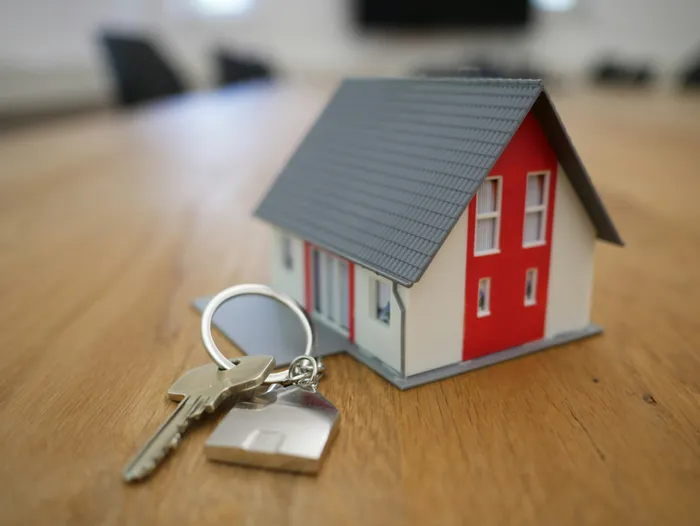South African homeowners show resilience in property market amid challenges
Property

home ownership, property, house, investment, expenses, home buyer, bond repayment, insurance, maintenance, levies The Absa Homeowners Sentiment Index for the first quarter of 2025 was expanded to include new questions exploring consumer perspectives on sustainable living and emerging trends likely to influence this in the future. The index showed a growing aspiration among South African homeowners to live off-grid, with many seeking to replace municipal and state-provided services – particularly electricity and water – in pursuit of greater sustainability and self-sufficiency.
Image: File Illustration
Homeowner sentiment fell only 2 percentage points to 85% in the first quarter, still the second highest reading for Absa’s Homeowners Sentiment Index (HSI) in a decade, which indicates that the momentum of positive sentiment is likely to continue into 2025.
The authors of the latest HSI, first developed in 2015 as an indicator of the state of consumer confidence in South Africa’s property market, said the dip in confidence was likely due to uncertainty around US policy direction and the South African Reserve Bank’s decision not to implement a widely anticipated interest rate cut in March.
The index results are broadly in line with the latest FNB Property Market Report that was released recently, which showed there was a continued, albeit modest, upwards trajectory in home values in the first quarter, which had averaged 2.2% year-on-year growth in April, up from 2% in March.
The HSI showed that buying sentiment held steady at 77% in the first quarter, maintaining gains in the previous quarter. The average age of homebuyers also continued to decline, with first-time buyers entering the market at 38, and property investors at the age of 43.
Selling sentiment fell marginally to 49%, down from 51% in the fourth quarter of 2024. Many sellers are still adopting a wait-and-see approach, anticipating that they will get better prices in the future, said Nondumiso Ncapai, Managing Executive: Absa Home Loans.
In the first quarter of 2025, the Index was expanded to include new questions exploring consumer perspectives on sustainable living and emerging trends likely to influence this in the future. The index showed a growing aspiration among South African homeowners to live off-grid, with many seeking to replace municipal and state-provided services – particularly electricity and water – in pursuit of greater sustainability and self-sufficiency.
“We’re seeing households take a more proactive stance on sustainability, not just through energy and water alternatives, but also through lifestyle changes that signal a broader recalibration of what homeownership means in today’s environment,” said Ncapai.
More than three-quarters (76%) of respondents indicated a desire to move away from state-supplied electricity, while nearly half (49%) expressed interest in replacing municipal water sources.
Households were also adopting more sustainable practices in their daily lives, with 57% cultivating fruit and vegetable gardens and 42% using solar power for electricity. A majority of homeowners (64%) are exploring borehole and filtration systems, while 53% are considering rainwater harvesting to improve water security.
Buy versus rent sentiment dropped by 4 percentage points in the first quarter. While many renters noted they had now saved enough for a deposit or sought more space, others continued to favour renting for its flexibility and perceived affordability.
Renovation sentiment fell by 3 percentage points to 79%, with most homeowners citing value adding improvements and quality-of-life enhancements as primary motivators. Rising input costs remain a barrier for many.
Investment sentiment held firm at 85%, sustaining its highest level on record since the Index began. While concerns around economic conditions and the country’s long-term trajectory remain, property continues to be viewed as a resilient investment vehicle.
At a provincial level, the highest overall homeowner sentiment was recorded in Limpopo (93%), the Free State (92%) – marking its highest score on record – and the Northern Cape (92%).
The Western Cape remains a net beneficiary of inward migration, although the pace slowed over the past three quarters. The Eastern Cape continues to record positive net migration, while KwaZulu-Natal saw an uptick in outward migration.
“The sustained strength in overall sentiment, particularly in buying and investment confidence, signals not only the resilience of South African consumers, but also a growing optimism around a medium- to long-term recovery in property market activity,” said Ncapai.
“Despite near-term pressures, there is a clear belief that property remains a reliable store of value and a pathway to financial security," she added.
BUSINESS REPORT
Visit: www.businessreport.co.za